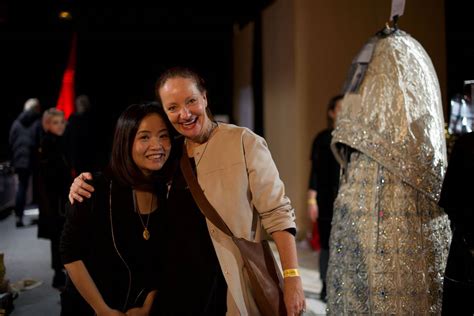A Quote by Michael Meade
As a culture, we turn away from people just when they are in times of change. That's when most communities used to embrace people, so the individual and the culture both benefited.
Related Quotes
Once you have an innovation culture, even those who are not scientists or engineers - poets, actors, journalists - they, as communities, embrace the meaning of what it is to be scientifically literate. They embrace the concept of an innovation culture. They vote in ways that promote it. They don't fight science and they don't fight technology.
I used to believe that you could change the culture or behavior of a company. I still believe it's possible, but it is at least a five to ten year process, if you are successful at all. More recently, I have been attracted to the ideas of the behavioralist, Edgar Schein. Schein has argued that you cannot change the culture of a company, but you can use the culture of a company to create change. It's an interesting approach to overcoming resistance. And if you can change how a company does its work, you might eventually be able to change how its people think.
From the State the exceptional individual cannot expect much. He is seldom benefited by being taken into its service; the only certain advantage it can give him is complete independence. Only real culture will prevent him being too early tired out or used up, and will spare him the exhausting struggle against culture-philistinism.
Since the 1960s, mainstream media has searched out and co-opted the most authentic things it could find in youth culture, whether that was psychedelic culture, anti-war culture, blue jeans culture. Eventually heavy metal culture, rap culture, electronica - they'll look for it and then market it back to kids at the mall.
I really feel concerned about young people within our present culture. Our present culture, we have to change. Change is inevitable and I wasn't raised in our present culture but it has great pressure that as a young person I never had. Material pressure, social pressure, visual pressure, how you look, and I just try to appeal to young people to think for themselves, to be their own person, and to ask questions and also be very attentive to our planet and our environment.
In times of totalitarian or autocratic rule, music (indeed culture in general) is often the only avenue of independent thought. It is the only way people can meet as equals, and exchange ideas. Culture then becomes primarily the voice of the oppressed and it takes over from politics as a driving force for change.
When bands come from that underground scene and go into the mainstream, people just hate it. And it blows my mind. If you're saying you don't like what pop culture is, then change it. And when someone does make an effort to change it, everyone rebels against it and hates it. You can't win. People just want that division to exist. They don't want that division to go away.



































